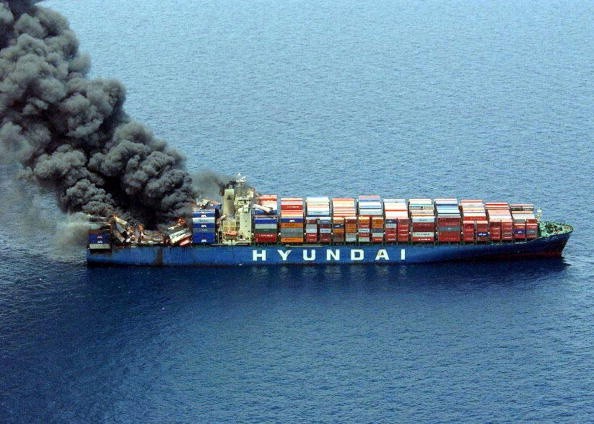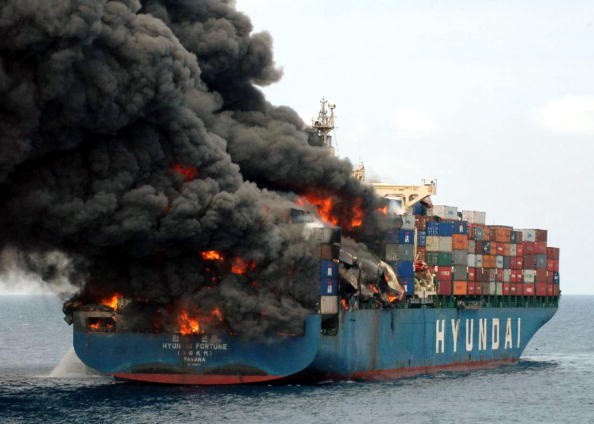The private Centre for Environmental Justice is taking legal action against the Sri Lankan government and operators of a container ship that is submerging into the Indian Ocean after burning for nearly two weeks offshore.

Sri Lankan Government Charged to Court
Environmentalists charged the Sri Lankan government last week after a container ship filled with harmful plastics and chemicals burned off the coast in the Indian Sea for just within two weeks. The Center for Environmental Justice (CEJ) began a legal proceedings against the operators of the ship also, and activists are requesting an independent inquiry into the catastrophe.
Meanwhile, Sri Lanka is now coping with a growing environmental disaster as great amounts of plastic pellets, oil, and chemicals from the sinking ship covered its coastline. The mix of residue that scattered all over the beaches there was described as plastic "snow."
Executive director of CEJ, Hemantha Withaanage, anticipates the waste to take up to 1,000 years to degrade saying, "this will be a life-long environmental pollution." Scientists say the pellets still in the sea could journey as far as India.
The Fire Outbreak
The legal preceding against the government and operators seeks uncertain damages, claiming the crew knew of an acid leak on May 11, long before the ship got into Sri Lankan waters, and it should never have been let in. The owners of the ship say they could not get the problem fixed because Qatar and India would not let the ship to dock.
Officials of Sri Lankan believe the fire that took place on May 20 was brought about by the leaking acid. The fire started while the ship was anchored around 18 kilometres (9.5 nautical miles) northwest of the capital, Colombo, and waiting to get into the main port of the country.
The Sri Lankan navy believes the blaze began because the vessel's chemical cargo, which included over 22 tonnes of nitric acid and other chemicals, majority of which was damaged in the fire. But debris both burned fibreglass and tonnes of plastic pellets have already polluted closeby beaches.

Testing of Water Samples
There are worries that a spill of the remaining oil and chemicals on the ship could kill marine life. However, Sri Lankan officials and the operator of the ship say there is still no great oil spill. The fire burned for about 13 days before being put out last week. Efforts to drag it into deeper waters failed when the stern of the vessel sank to the seabed.
The ship stayed partly submerged in waters approximately 70 feet (21 metres) deep. On Friday, the government said it was examining water samples to know whether the ship was leaking oil. The tests were provoked by satellite images from Planet Labs Inc that revealed a substance that could be oil in the water close to the ship.
A Colombo court has banned the captain of the ship, chief engineer, and assistant engineer from traveling out of the country.
Related Article : CONFIRMED: Plastic Pollution Affects Deep Sea Animals
For more news, updates about plastic snow and similar topics don't forget to follow Nature World News!
© 2025 NatureWorldNews.com All rights reserved. Do not reproduce without permission.





